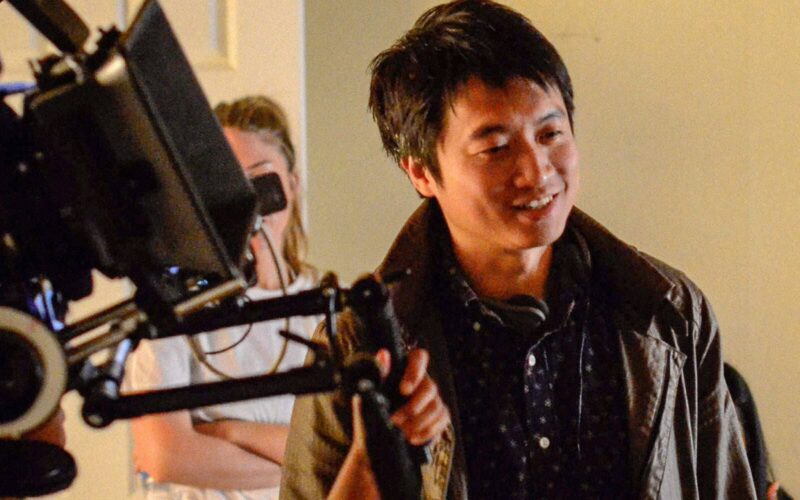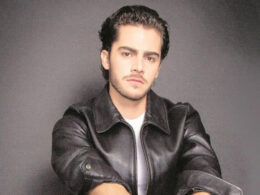Few paths through life are as unexpected—and as richly textured—as that of Marcus Chan. Once a solicitor negotiating high-stakes corporate real-estate deals in Hong Kong and London, Chan exchanged boardrooms for backlots, codes of law for reels of film, and briefs for storyboards. Today, he is a filmmaker, editor, and advocate whose work spans narrative features, documentaries, branded content, and socially conscious projects. Through every pivot, Chan has carried with him the same analytical rigor and strategic mindset that once served corporate clients—skills he now applies to wrangling film crews, sculpting performances, and stewarding stories that challenge conventions.
It was nearly a decade ago, approaching his thirtieth birthday, when Chan first asked himself the question that would alter his trajectory: “What do I really want to do for the rest of my life?” Practicing law in Hong Kong at various international law firms found himself increasingly drawn to cinema’s power to explore human complexity. On weekends and in spare evenings, he shot Six Fragments of the Endless Journey Called Life, a micro-budget short that nevertheless earned a finalist nod at the Hong Kong Independent Film & Video Awards. That early success bolstered his resolve. The validation convinced him that storytelling, not real-estate law, was his true calling. He began to envision a life of making films.
Relocating to Los Angeles to pursue an MFA in film production at UCLA was both exhilarating and daunting. Despite Hong Kong’s vibrant film community, Chan knew Hollywood’s gatekeepers often confine foreign talent to narrow roles. “As someone from Hong Kong, we don’t spend our time thinking about our ‘Chinese-ness,’” he notes. “What interests me are the people underneath, their personal stories, their emotions.” He endeavors to make films where cultural identity serves as a backdrop rather than blueprint—where characters could simply exist without cultural clichés defining every scene.
Through serendipity and grit, his credits began to multiply. He directed and edited Palace, a short film starring Whoopi Goldberg and executive produced by James Franco, which earned Best International Film at London’s New Renaissance Film Festival and a nomination for Best International Director. He contributed to Memories to Choke On, Drinks to Wash Them Down, a Hong Kong indie that screened at Rotterdam and TIFF, and co-edited Love Goes Through Your Mind, a bipolar-disorder drama that premiered at Austin Film Festival. Soon, campaigns of major brands filled his reel. Yet beneath the prestige of festival laurels, Chan remained guided by the same maxim: “What often pays off is staying true to yourself and not going along with the flow.”
For Chan, filmmaking is never a solitary act. He views it as a tapestry woven from countless creative threads—actors, editors, cinematographers, designers, and yes, even chance encounters. In many ways, his legal training had already prepared him: crafting contracts, coordinating schedules, and keeping multiple stakeholders aligned are as indispensable on set as in the boardroom. “Filmmakers know better how random and unpredictable any film enterprise can be,” he observes. A single phone call—sometimes from a BAFTA mentor or a chance meeting at a festival mixer—can lead to unexpected roles and partnerships.

This spirit of collaboration extends to his editing work, where Chan’s technical fluency becomes a quiet superpower. He describes editing as an “invisible yet profound force,” a negotiation between filmmaker and audience. “Modern movie-going audiences have already been taught certain film grammar,” he says. “The job of the editor is to utilize such grammar to curate these moments so the audience can appreciate the emotions being communicated.” Whether cutting together emotional beats in a true-crime documentary or fine-tuning comedic timing in a branded spot, Chan treats editing as a living dialogue—one that shapes how viewers perceive story, character, and truth. He approaches post-production with a jurist’s precision: assembling rough cuts as if drafting a legal brief, then tightening arguments through iterative revisions. Subtle musical cues underscore tension, while ambient silence punctuates moments of revelation. Transitions are never arbitrary; each fade or cut signals a shift in perspective or time, inviting audiences to piece together meaning.
Chan’s current passion project is perhaps his most ambitious—and socially urgent—yet: he is currently editing a feature-length true-crime documentary probing toxic masculinity and institutional failure. Fueled by case studies that reveal systemic negligence, the film resists sensationalism in favor of thoughtful analysis. “We constantly need to remind ourselves that what drew us to this story… is how the case reflects bigger societal problems,” Chan explains. Rather than shouting “Look! This is so messed up!”, he says, the film asks “Here’s what we think led to this.”
Production has woven Chan’s editorial acumen and collaborative instincts together. He worked meticulously with the director to ensure the narrative remained balanced and ethical—a process that demanded negotiation akin to his legal days. Through this meticulous approach, Chan aims not only to inform viewers but to spark systemic conversations around accountability and gender norms.
Chan’s commitment to social impact extends beyond the screen. He is currently on the board of the non-profit Asian Professional Exchange (APEX)—the premier organization for Asian Americans in Southern California. He was also a judge for the Los Angeles Diversity Film Festival and the Social Justice Film Festival, festivals dedicated to amplifying underrepresented voices.
Central to Chan’s ethos is the belief that characters should be defined by their humanity, not by reductive labels. Whether directing a scene or shaping a final cut, he interrogates every frame for unconscious bias. Ultimately, his films have transcended niche markets, playing at festivals in Rotterdam, Toronto, London, and Los Angeles precisely because they touch on universal themes: ambition, loss, resilience. “What interests me,” Chan insists, “are the people underneath, their personal stories, their emotions.”
He speaks of a future in which technology democratizes nonfiction in ways previously unimaginable. “It is quite heartening,” he says, “just ten or fifteen years ago, many of these stories would have gone unrecorded.” But with democratization comes responsibility: an ethical imperative to protect subjects, verify facts, and avoid voyeurism. For Chan, this tension between access and accountability is where true innovation lies.
Marcus Chan’s arc—from solicitor to festival-circuit favorite, from corporate deals to creative equity—is anchored by a rare blend of analytical precision and boundless curiosity. He remains equally at home negotiating shoot schedules and fine-tuning edit bays, mentoring emerging talent and wrangling executive producers. Along the way, he has proven that a career need not be linear to be coherent; that the skills of law—negotiation, strategic thinking, meticulous attention to detail—can thrive in the chaos of production; and that art, at its best, demands both heart and mind.
In Marcus Chan’s world, the next cut is always the most exciting—because beyond it lies another story waiting to be told.
Official Website
IMDB









